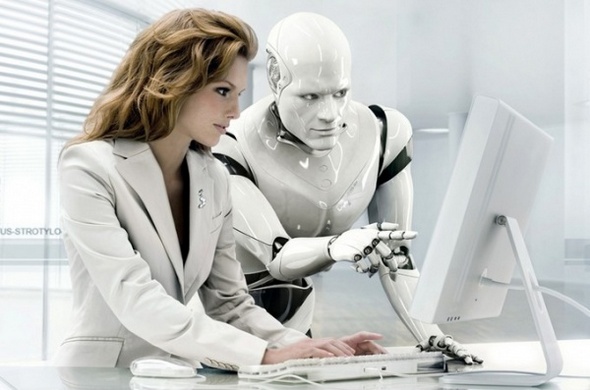Organizations world-wide are on a journey of workforce transformation driven by technology as the digital era continues to disrupt the corporate landscape. The modern workplace has largely adopted automation, artificial intelligence, and digitalization, which promise to boost productivity, agility, and competitiveness. But in the midst of this technological upheaval, it's important to remember the human element.
The Tech-People Paradox
Organizations risk underestimating the value of the human component of their workforce in the hurry to adopt cutting-edge technologies. While automation and AI can optimize workflows and streamline procedures, nothing compares to the invaluable worth of human understanding, sensitivity, and creativity. Finding the right balance between utilizing technical innovation and keeping the human aspect is crucial for workforce transformation success.
Enhancing Human-Machine Collaboration
The goal of a tech-driven workforce transformation is to enhance human capabilities rather than replace people with machines. Amazing things can happen when humans and machines work together. Machine learning algorithms, for instance, may examine enormous datasets to produce insights, but it takes a human touch to interpret those insights, make tactical choices, and apply them successfully in a real-world setting. A culture that promotes such collaboration must be fostered, and leadership and HR teams are essential in this process.
Empathy in Leadership
Empathy must be demonstrated in leadership throughout workforce change. It is crucial to comprehend the worries, goals, and concerns of employees in light of technological development. Concerns about job security, skill obsolescence, or rising workloads as a result of automation may be present among employees. Leaders may lessen resistance to change and assist staff members in embracing new technology with confidence by listening empathically, addressing concerns, and providing opportunity for retraining or upskilling.
Investing in Skills Development
The transformation of the workforce caused by technology demands investment in skill building. The workforce may require new talents to succeed in a digitally enhanced workplace, and leaders must acknowledge this possibility. It is crucial to offer access to training, upskilling programs, and ongoing learning opportunities. Organizations may empower their people to adapt and flourish in the face of technology breakthroughs by building a culture of learning and growth.
Preserving the Human Touch
The personal touch is still crucial in positions that involve working with customers. While automated customer service systems and chatbots can increase efficiency, they should be used in addition to, not place of, human interactions. Businesses must put an emphasis on empathy and personalization while providing customer service, making sure that technology improves rather than detracts from the customer experience.
Wrapping it up
The evolution of the workforce due to technology is inevitable in the current business environment. Organizations must understand that conserving and improving the human element is where transformation's greatest power lies. Organizations may successfully manage the digital transformation by embracing human-machine collaboration, encouraging compassionate leadership, funding skill development, and maintaining the human touch in customer interactions. In the end, transformations that successfully blend the best of technology with the best of people produce a harmonious synergy that spurs creativity and advancement.
Latest posts by Tresha Moreland (see all)
- Recession 2008 Versus 2024: Lessons Learned and Key Workforce Differences - April 24, 2024
- Why Layoffs Fall Short: Embracing a Holistic Approach to Cost Savings - April 21, 2024
- Find Your Anchor In A Sea Of Fear - April 18, 2024













